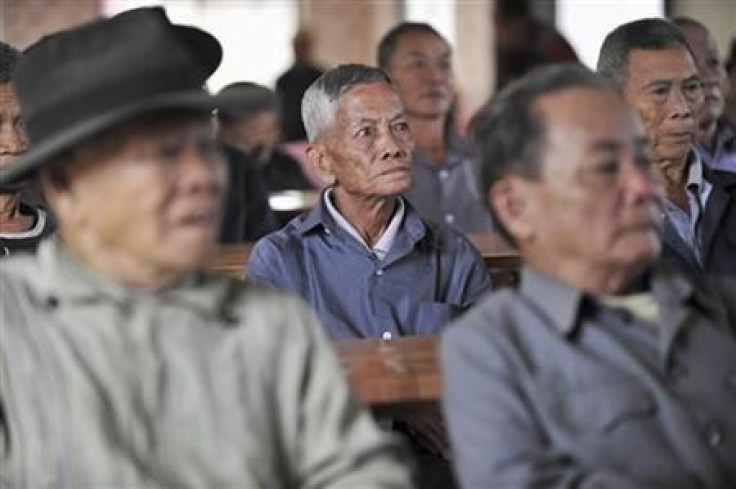Chinese Law Requires Children To Visit Elderly Parents

If you don't visit your elderly mother in the United States, the worst you usually get is an angry phone call. In China, neglecting your aging parents has now become a far more serious matter: It can land you in court, according to a new law.
The law was passed last Friday by China's National People's Congress as part of several amendments to the Protection of the Rights and Interests of the Elderly legislation, which will officially be implemented on July 1.
According to the amendment, "family members who live separately from the elderly should visit them often."
Though the amendment does not specify how often visits should take place, it does stipulate that employers should help make this possible. "Employers should guarantee the right to home leave in accordance with relevant regulations," the law says.
According to state media, the new clause was added to existing legislation because China's growing elderly population is becoming increasingly neglected. With this law, it will give the elderly a framework to justify pursuing legal action if they feel they have been disregarded by their children.
China's elderly, traditionally revered, are now a forgotten population amid the nation's rapid development. Stories of abandonment and mistreatment are not uncommon. In early December, Weibo, China's version of Twitter, caught wind of the story of a grandmother in her 90s in Jiangsu province who was left alone in a pigsty by her children. Moreover, cases of children trying to seize the assets of their elderly parents without approval also make headlines frequently.
The call for these legal changes is just one result of China's three-decade-long One-Child policy, which limited most couples to having a single child. The policy has drastically changed the traditional family structure. As a result, an only child becomes responsible for caring for both parents and usually both sets of grandparents, which is a great financial burden for a single person.
Liu Xinran, a Beijing native, told Al-Jazeera about her struggle as an only child caring for her parents.
"As an only child in my family, I have a lot of pressure to perform well, because the young people have to support and take care of the family. My parents, on the other hand, have each two siblings, so when my grandma gets sick, the aunts and uncles can take turns taking care of them," Liu explained.
According to Jinling Evening News, one-third of the elderly population in Nanjing were depressed or nearly depressed because they felt their children forgot about them. One professor at the Chinese University of Political Science and Law, Wu Changzhen, told the South China Morning Post that the new amendment is meant to serve as a reminder of traditional obligations about one's parents and the need to tend to them emotionally, rather than result in actual prosecution.
A report by the National Committee on Aging is estimating a third of the Chinese population will be 60 or older by 2053. Whether or not the law will appease that growing population and cause the nation to revert to traditional practices of filial piety is still to be seen.
© Copyright IBTimes 2024. All rights reserved.












